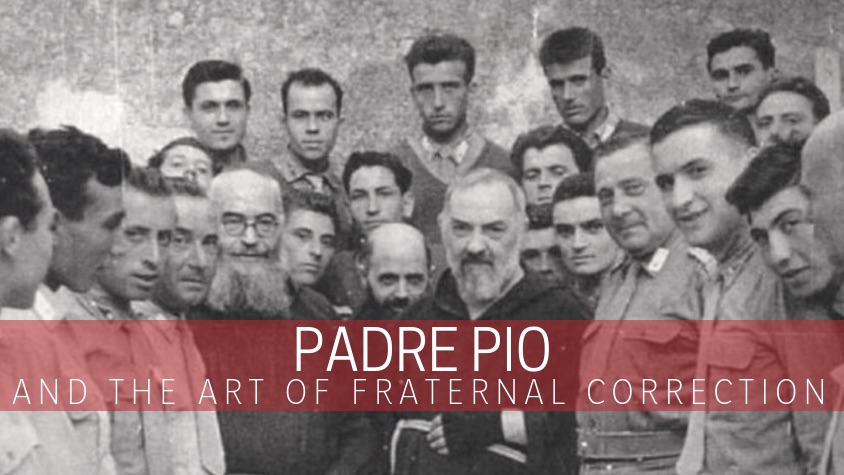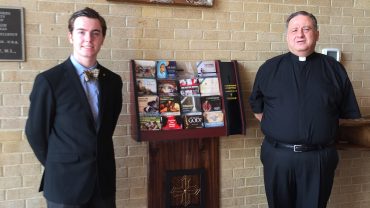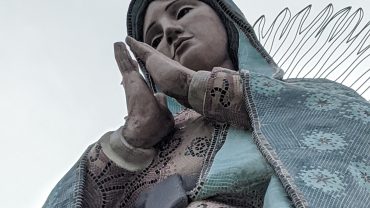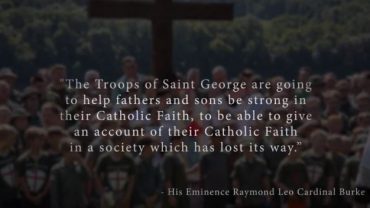

(SEPTEMBER 18, 2018) — Nice is not a virtue. It’s not a bad thing to be nice, but it’s not among the seven virtues. To be frank, Jesus wasn’t always nice. When he overturned the moneychangers’ tables, I’m sure none of those who witnessed the event would have said, “Oh, that was nice!”
If you witness someone committing a grave sin and you sit back and do or say nothing, people might think you’re nice. If someone goes through life just minding their own business all the time, they may have someone deliver your eulogy extolling the person’s niceness. Trust me; you don’t want to go there.
Rather, we’re called to embrace the four cardinal virtues—prudence, justice, temperance, and fortitude—and the three theological virtues of faith, hope, love/charity. The Catechism of the Catholic Church teaches us that a “virtue is a habitual and firm disposition to do the good. It allows the person not only to perform good acts but to give the best of himself. The virtuous person tends toward the good with all his sensory and spiritual powers; he pursues the good and chooses it in concrete actions” (#1803).
That means we’re called to intervene when someone goes astray—an act known as fraternal correction. It takes courage (a virtue) to correct a friend or family member. Sometimes it may not seem nice to the person receiving correction, but it also takes tact or diplomacy to reach a person in need.
What does this have to do with St. Pio of Pietrelcina (1887-1968), whose feast day we celebrate on Sept. 23? Those who’ve studied his life will know that often he was not nice—but he was always virtuous.
Any telling of Padre Pio’s life must start with the Mass and his love of Jesus in the Eucharist. When he celebrated Mass, he would often go into ecstasy for prolonged periods of time. He once said that at the Consecration he saw everyone who had asked for his prayers. Witnesses also say they saw a crown of thorns on the priest’s head during the Consecration.
He once famously said that “it would be easier for the world to survive without the sun than to do without the Holy Mass.”
Padre Pio was also physically tormented by demons. In 1998, I traveled to San Giovanni Rotondo where he lived in Southern Italy and saw his bedroom/cell where he was routinely thrown across the room by minions from hell. Despite this horror, his faith only grew stronger.
As a confessor, Padre Pio was known to be stern.
In the early days of his priestly ministry, Padre Pio often spent lengthy times in the confessional. Once his reputation spread, his confession lines grew until the average waiting time was 10 days. It got to the point that the Capuchins implemented a ticketing system starting in 1950. Despite his fame and demand on his time, he had a remarkable way of focusing on each penitent as they came to be healed from sin. We have a testament to the importance of confession by the sheer amount of time he spent hearing confessions. Some days, he spent 15 to 19 hours in the confessional.
Confessing to a priest who has the charism of reading souls might seem interesting, maybe attractive, [but] in reality, it was humbling for many. Padre Pio was not afraid to be gruff or confrontational to impenitent souls! He once called a man a pig and told him to get out of his confessional. He knew penitents’ sins better than the penitents themselves and called out anyone trying to hide something. (Source)
One of the beautiful things about Catholic groups for men and boys like the Troops of Saint George is that they provide a forum for members to know one another well—to know one another’s hearts and minds. That personal connection forces each of us to step up and become a better version of ourselves. Scripture says that “as iron sharpens iron, one man sharpens another” (Proverbs 27:17).
This familiarization also sets up men and boys to become one another’s mentors. Fraternal correction may not always be nice, but it’s necessary if we’re to form saints. One of my mentors once told me that each of us is like a block of marble that needs to be chipped and polished into God’s masterpiece. Each blow of the hammer hurts a little, but those blows help reveal something—the beauty that lies beneath.
PATRICK NOVECOSKY is a seasoned Catholic speaker, journalist and thought leader who runs NovaMedia and blogs at The Praetorium and for TSG in collaboration with iAmplify.



